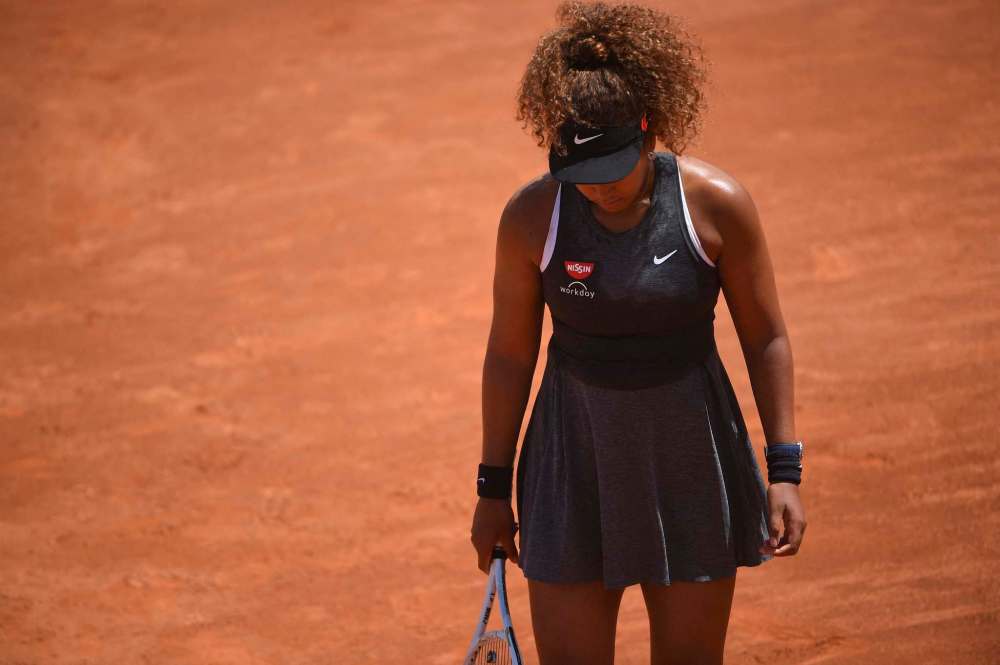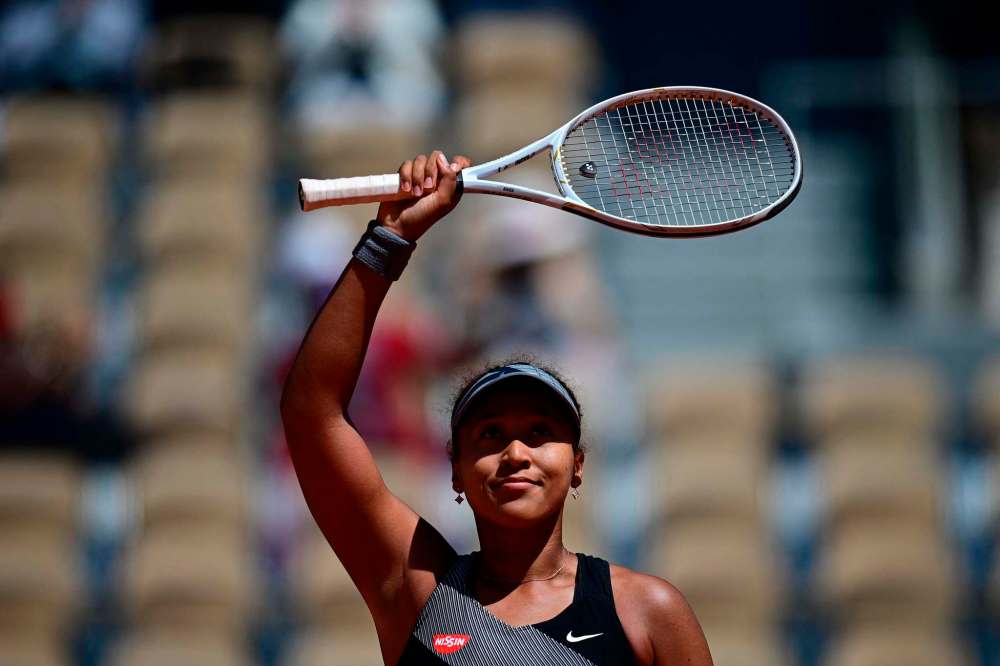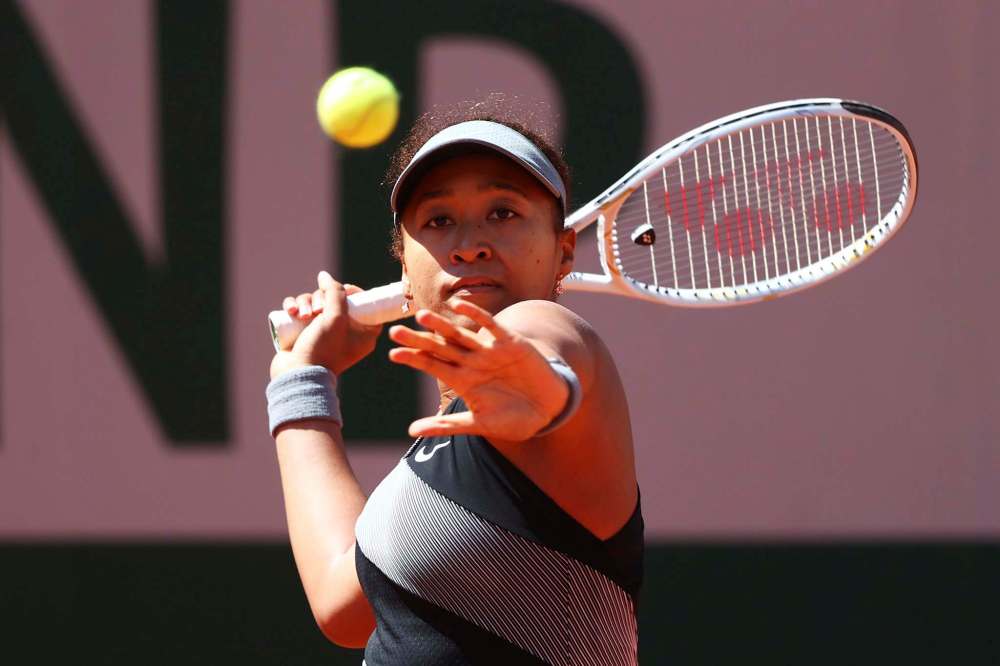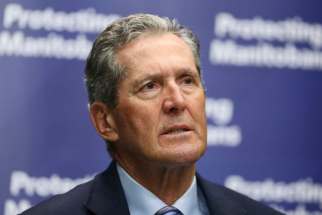Time to recognize admitting frailty a sign of strength Tennis star Naomi Osaka's withdrawal from French Open puts spotlight on mental health
Read this article for free:
or
Already have an account? Log in here »
To continue reading, please subscribe:
Monthly Digital Subscription
$0 for the first 4 weeks*
- Enjoy unlimited reading on winnipegfreepress.com
- Read the E-Edition, our digital replica newspaper
- Access News Break, our award-winning app
- Play interactive puzzles
*No charge for 4 weeks then price increases to the regular rate of $19.00 plus GST every four weeks. Offer available to new and qualified returning subscribers only. Cancel any time.
Monthly Digital Subscription
$4.75/week*
- Enjoy unlimited reading on winnipegfreepress.com
- Read the E-Edition, our digital replica newspaper
- Access News Break, our award-winning app
- Play interactive puzzles
*Billed as $19 plus GST every four weeks. Cancel any time.
To continue reading, please subscribe:
Add Free Press access to your Brandon Sun subscription for only an additional
$1 for the first 4 weeks*
*Your next subscription payment will increase by $1.00 and you will be charged $16.99 plus GST for four weeks. After four weeks, your payment will increase to $23.99 plus GST every four weeks.
Read unlimited articles for free today:
or
Already have an account? Log in here »
Hey there, time traveller!
This article was published 03/06/2021 (1654 days ago), so information in it may no longer be current.
Good for her.
That was my reaction to 23-year-old tennis star Naomi Osaka’s pair of statements about not doing press during — and then subsequently withdrawing from — the French Open earlier this week. Citing depression and anxiety, Osaka, the top-earning female athlete in history, decided to prioritize herself and her mental health and not submit to Grand Slam tournaments’ inflexible media requirements. (Players can be fined for as much as $20,000 for failure to show up at press conferences.)
Professional athletes, especially big names such as Naomi Osaka — even if you don’t follow tennis, you likely know her name — exist in a strange space in which they are public figures, celebrities and, usually, role models, whether they want to be or not. For a person such as Osaka, a self-described introvert who deals with anxiety, that can be a tough place to live. Wanting to be excellent at tennis and wanting to be a famous person are not twin desires. And, as we’ve seen from too many high-profile deaths by suicide, fame, money, success and excellence are not effective innoculations against anxiety and depression.

For athletes, there’s also the added stigma of mental illness, that it’s a sign of “weakness.” If regular people trip over the W-word, then you can understand why someone who has made a career out of feats of endurance and strength might have an extra hard time with it. That’s why so many professional athletes keep their struggles out of view, with many only disclosing difficulties long after they retire — usually at an age most of us would still consider very young.
But Osaka’s bold decision isn’t just powerful because of the conversation it has sparked about athletes and mental health. It’s powerful because she pushed back. She said no, a word women aren’t historically respected for saying. As New York Times journalist Lindsay Crouse wrote in a piece aptly headlined The Power of Nope, “this was a power move — and it packed more punch coming from a young woman of colour. When the system hasn’t historically stood for you, why sacrifice yourself to uphold it? Especially when you have the power to change it instead.”
Amen. Moreover, saying “This is how we’ve always done things” or “It’s part of the job” doesn’t carry much water, especially since what we’re talking about are press conferences. It’s not as though Osaka is asking to change the very rules of tennis. It’s that she’d like to improve one (totally changeable) aspect of her job.

An argument that often comes up in defence of these conferences is that they allow players to “tell their stories.” But is that what really happens? There’s a reason “110 per cent” is a cliché. One-on-one interviews are always better for everyone involved. And it’s not just in sports; I cannot tell you how many teleconferences I suffered through in my music-writing days in which some radio DJ in Calgary would use his one question to ask if the artist was excited about coming to Calgary.
You’ve seen the daily COVID-19 briefings where reporters get to ask two whole questions, and how frustrating it is. (An aside: imagine if our politicians — who have, in recent years, increasingly relied on vague statements attributed to “a government spokesperson” — were fined for not speaking to the media? And those are elected officials who actually have to answer to the public.)
So no, press conferences are not ideal in most situations. As New Yorker sports writer Louisa Thomas notes, “the press, particularly at the Grand Slams, can include people who are not well versed in tennis; tabloid reporters; and, not infrequently, people who ask ham-handed and offensive questions, particularly of Black women.” Why should she have to be subjected to that?
What matters is Osaka’s performance on the court, not her performance behind a microphone. “I’m gonna take some time away from the court now, but when the time is right I really want to work with the Tour to discuss ways we can make things better for the players, press and fans,” she wrote in her statement.

Grand Slam leaders would do well to take her up on that offer. The well-being of the players — without whom there are no tournaments — should be their priority, not antiquated rules that serve very few. As Osaka wrote, “If the organizations think that they can just keep saying, ‘do press or you’re gonna be fined,’ and continue to ignore the mental health of the athletes that are the centerpiece of their (corporation) then I just gotta laugh.”
It’s worth noting that French Tennis Federation president Gilles Moretton read a prepared statement to reporters Tuesday about Osaka’s withdrawal. Afterwards, he refused to take any questions.
jen.zoratti@freepress.mb.ca
Twitter: @JenZoratti

Jen Zoratti is a Winnipeg Free Press columnist and author of the newsletter, NEXT, a weekly look towards a post-pandemic future.
Our newsroom depends on a growing audience of readers to power our journalism. If you are not a paid reader, please consider becoming a subscriber.
Our newsroom depends on its audience of readers to power our journalism. Thank you for your support.





